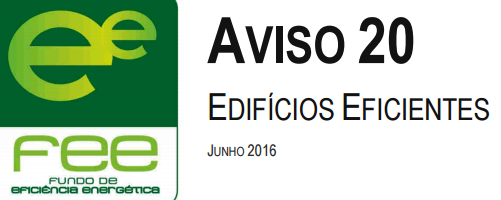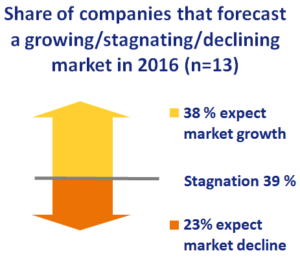Portugal: Two New Incentive Schemes on the Horizon
July 18, 2016
 Good news for the Portuguese market: This year’s agenda includes two new schemes to support energy efficiency measures in buildings, and solar thermal has been put into the spotlight. The first programme, Aviso 20 – Edifícios Eficientes 2016 (Efficient Buildings), has already been open to applications since 8 July 2016. Its budget of EUR 1.1 million covers up to 60 % of the cost of efficiency measures, including new solar water heater installations, in existing residential and commercial buildings. The second programme, Casa Eficiente (Efficient Home), is still under development, but the scheme’s much larger budget of EUR 100 million will offer low-interest loans for efficiency measures in the residential sector. Obviously, both programmes are not exclusively solar thermal ones; they also support window replacement or additional insulation.
Good news for the Portuguese market: This year’s agenda includes two new schemes to support energy efficiency measures in buildings, and solar thermal has been put into the spotlight. The first programme, Aviso 20 – Edifícios Eficientes 2016 (Efficient Buildings), has already been open to applications since 8 July 2016. Its budget of EUR 1.1 million covers up to 60 % of the cost of efficiency measures, including new solar water heater installations, in existing residential and commercial buildings. The second programme, Casa Eficiente (Efficient Home), is still under development, but the scheme’s much larger budget of EUR 100 million will offer low-interest loans for efficiency measures in the residential sector. Obviously, both programmes are not exclusively solar thermal ones; they also support window replacement or additional insulation. The budget of Aviso 20, which was provided by the Portuguese Energy Efficiency Fund, has been divided into equal parts – EUR 550,000 are available for residential and EUR 550,000 for commercial buildings (for more information, please see the table below. In the residential sector, the call is open to single-family homes or units in multi-family buildings, which can both profit from 60 % cost coverage of the solar thermal investment, including installation, up to a maximum of EUR 2,500 for the solar system and EUR 3,000 for a solar device and a new boiler. In regard to commercial buildings, the subsidy covers 35 % of the costs at the same cap levels. Applications will be accepted until 8 November 2016.
Aviso 20: Small budget and wide range of eligible technologies
“The 60 % support is significant, making the programme very appealing to families, even within an environment that has been less than conducive to investing,” the Portuguese solar industry association, APISOLAR, announced.
The Portuguese market has been experiencing a downward trend for five consecutive years. In 2015, sales dropped by 9 % and the newly installed area decreased to 46,000 m². Industry stakeholders welcome any new incentive, although they consider the budget to be small and fear the effects of the programme’s broad inclusion of targeted building segments and eligible technologies. “Aviso 20 will certainly be well received and utilised by the industry, despite the budget being nearly half of what was available four years ago,” explained APISOLAR’s Vice President, Victor Júlio. In 2012, the Edifício Eficiente scheme provided EUR 2 million in subsidies for solar thermal installations and window replacement.
The Portuguese expert said, regretfully, that “once again, the associations had not been consulted before the call was issued”, but he was confident “that the industry has learned from previous experiences in 2012, and the application process and the submission of proposals submission has been made faster and simpler, allowing companies to use their precious time to promote and sell systems rather than spend it on completing repetitive forms and uploading them.”
EUR 100 million for low-interest loans
Little is known about the second incentive programme: The Portuguese government has recently announced the launch of Casa Eficiente, which aims to promote the implementation of energy efficiency measures, including the installation of solar thermal, in the residential sector. The scheme will allow access to subsidised loans and should have a budget of EUR 100 million provided by the Investment Plan for Europe. The first announcements about the programme name the Portuguese Confederation of Construction and Real Estate (CPCI) as the managing authority.
Initially, the solar industry had been a bit unsure about the choice of programme administrator. Speaking for APISOLAR, Victor Júlio said the announcement resulted in “very restrained joy,” since the CPCI is an entity whose focus is on the building industry – which could, in some way, favour bigger construction companies with global turnkey solutions. But any concerns seem to have been alleviated, as the two institutions have already discussed the matter, according to APISOLAR. In turn, the CPCI has also said it was “open” to contributions from all sectors, because “this is such an important project that it should mobilise all economic stakeholders.”
More information:
The investment grant scheme Aviso 20 – Edifícios Eficientes 2016 (Efficient Buildings) accepted applications between 8 July and 8 November 2016. Its budget of EUR 1.1 million covered up to 60 % of the cost of efficiency measures, including new solar water heater installations, in existing residential and commercial buildings.
| Country / region | Portugal |
| Name of programme | Aviso 20 |
| Type of incentive | Investment grant |
| Eligible technologies | Solar water heaters, replacement of inefficient conventional heating systems, replacement of windows, improved insulation and efficient lighting systems |
| Applicable sectors | Residential and commercial buildings |
| Amount | Residential buildings: up to 60 % of the investment costs of a solar water heater including installation
Commercial buildings: up to 35 % of the solar thermal system including Installation costs Costs related to VAT tax are not included |
| Maximum incentive | Residential and commercial buildings: Maximum incentive of EUR 2,500 for a retrofitted solar thermal system with an existing boiler and a maximum incentive of EUR 3,000 for a solar thermal system including a new boiler |
| Requirements for system | At least with an energy Class A |
| Requirements for installation | No requirements |
| Finance provider | Comissão Executiva do Plano Nacional de Acção para a EficiênciaEnergética (PNAEE) – Fundo de Eficiência Energética |
| Total funds | EUR 1.1 million (50 % for residential buildings and 50 % for commercial buildings) |
| Funding source | Energy Efficiency Fund |
| Effective date | 8 July 2016 |
| Expiration date | 8 November 2016 |
| Website | Aviso 20: http://www.pnaee.pt/avisos-fee/11-fee/avisos/78-aviso-20-edificios-eficientes |
| Last review of this tabloid | July 2016 |
| Contact | fee@pnaee.pt http://www.pnaee.pt/fee |


